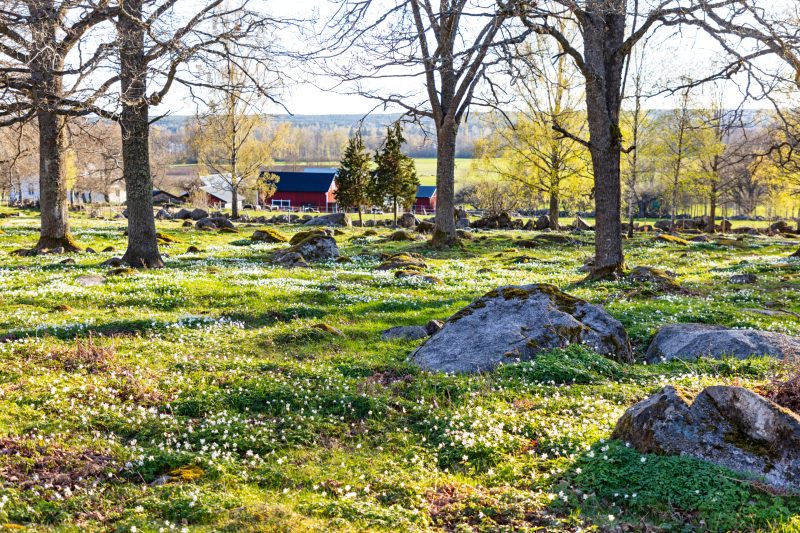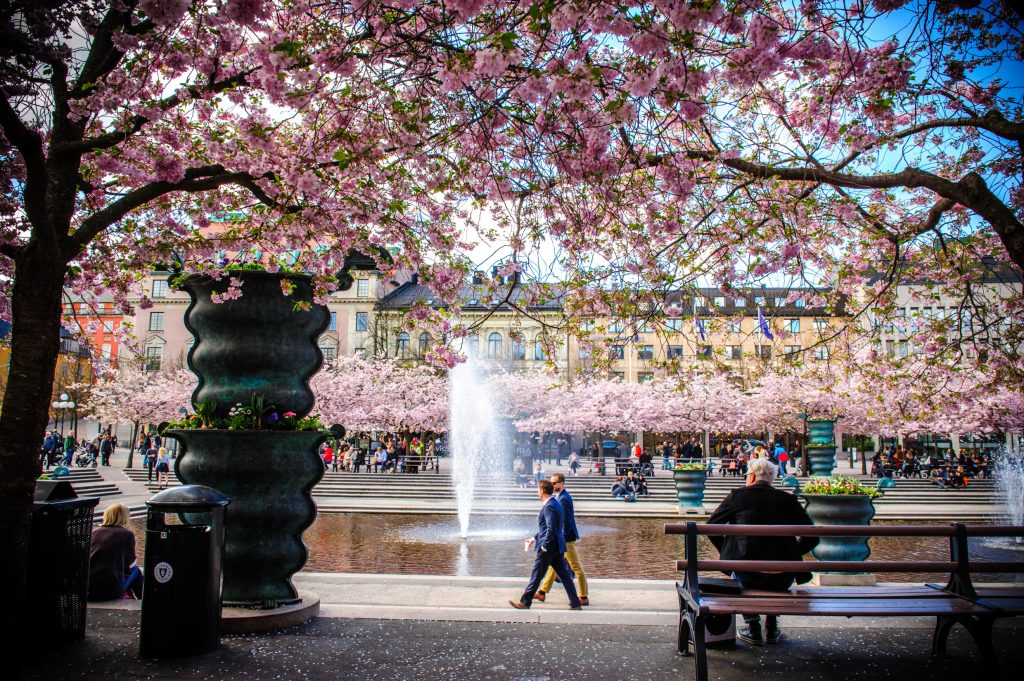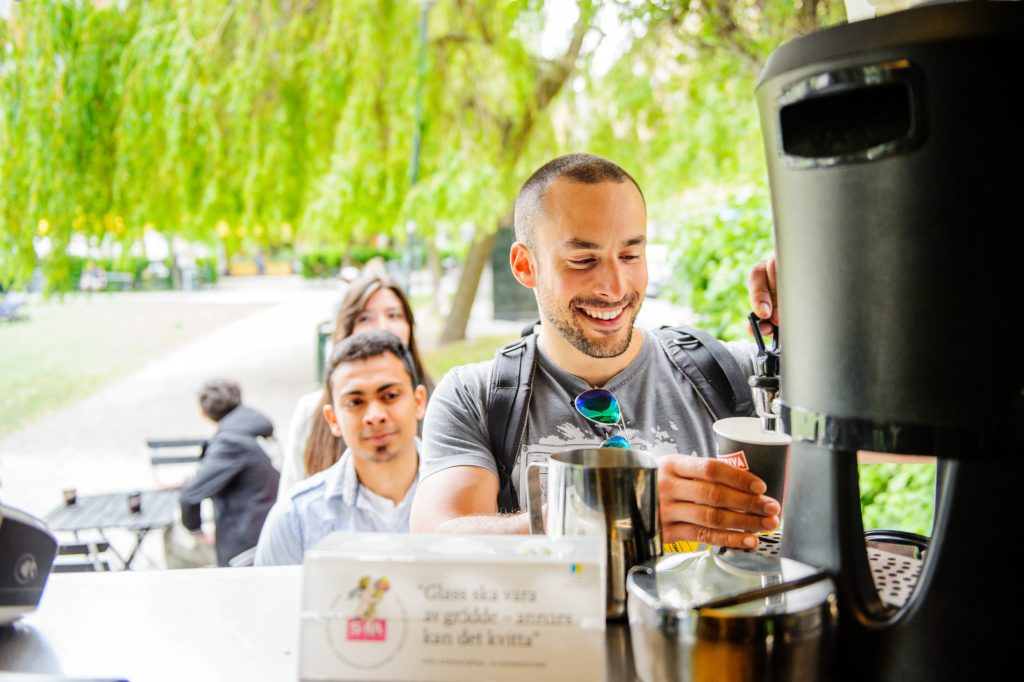
The Swedish way: The art of “Lagom” – Part II
Hej hej! Welcome back to the second part of our journey into the Swedish way of life. As we move closer to the summer, and the warmth of spring envelops us, it’s the perfect time to explore the essence of Swedish culture. In this blog post, we will discover the renowned Swedish work-life balance, their connection with nature, and the art of Lagom. Along with some additional tips to enrich your experience in this beautiful country.
In Part 1, we explored the nuances of Swedish culture, from their love of coffee to their preference for personal space. So, sit back, relax, and let’s embark on this captivating exploration of Sweden’s unique way of living.
Work-life balance
Sweden’s renowned work-life balance is more than just a policy. It’s a way of life that prioritizes personal well-being alongside professional success. With extensive parental leave and a high labour force participation rate, Sweden embraces the notion that everyone deserves the opportunity to balance their career with family life.
Hence, for students at KI, this ethos extends to our academic journey. Here, personal development is valued just as highly as scholarly pursuits, fostering a healthy equilibrium between studies and leisure. Picture a study week that leaves ample room for exploration, socializing, and cultural immersion.
Moreover, in Sweden, education isn’t confined to the classroom; it’s a holistic experience that encourages students to thrive both academically and personally. Embrace the Swedish way, where learning extends far beyond textbooks, enriching lives and shaping futures.
The art of Lagom
Lagom is a Swedish term that embodies the concept of having just the right amount—not too much, and not too little. It’s a philosophy that promotes balance and simplicity in all aspects of life, from work to leisure. And it’s considered a key to happiness and contentment in Sweden. For students, embracing “Lagom” can mean finding a healthy equilibrium between studying and downtime. It’s about studying smart, not hard, and ensuring there’s time for relaxation and social activities.
Similarly, think of “Lagom” as the Goldilocks zone of your daily routine. It’s about having enough time to hit the books and absorb what you learn, but also to chill with friends, enjoy a fika, or just breathe in some fresh air. It’s not cramming all night before an exam; it’s consistent, moderate study sessions that leave you feeling prepared and stress-free. “Lagom” is the art of living life in moderation, where everything is in balance and just right for you.
Nature as nurturer
In Sweden, nature plays a vital role in promoting well-being and sustainability. About two-thirds of the land is covered in greenery and extensive conservation efforts are in place. Swedes are very close to nature as its benefits for humans are derived from the environment, influencing attitudes and actions towards conservation.
Thus, for us at KI, nature isn’t just a backdrop; it’s an essential part of our education. Imagine nature as a kind teacher who doesn’t just give you facts to memorize but also teaches you about life. Here, we are encouraged to spend time outdoors, learning from nature’s classroom. It’s about more than just reading about trees and animals for KI’s scientists; it’s about experiencing them, understanding their cycles, and seeing firsthand how everything is connected.

Therefore, embrace Sweden’s stunning landscapes, especially during summer, and learn to become a caretaker of the planet.
Wait in line
The culture of waiting in queues in Sweden reflects the society’s values of egalitarianism and orderliness. It’s based on the principle that everyone is equal and should wait their turn. This respect for the queue is seen as a form of social justice and equity, where the idea of ‘first come, first served’ is deeply rooted.

Particularly, in Sweden standing in line is like a quiet game everyone plays. Picture everyone waiting their turn as if they’re standing in a line for the best cinnamon bun in town. Now, should you dare to skip ahead, oh dear, you won’t hear the end of it. In fact, you won’t hear anything at all. Swedes might mentally draft a saga of disapproval, casting you as the mischievous troll disrupting the harmony. But it’s all kept hush-hush. They’ll just give you the ‘I’m-not-angry-just-disappointed’ look that could freeze coffee mid-pour. It is like stealing a meatball from everyone’s plate, “Hey, that’s not cool”. So, stand in line, enjoy the wait, and remember, in Sweden, patience is as golden as the midsummer sun.
Overall, in the embrace of Sweden’s serene landscapes and the quiet order of its queues, we find a culture steeped in balance and moderation. The Swedish way, with its harmonious work-life integration and the wisdom of Lagom, invites us to live fully yet simply, ensuring that life’s pleasures are neither too sparse nor too excessive. As we bid farewell, let’s carry with us the essence of Sweden—a commitment to a life well-lived, where patience and fairness illuminate the path to contentment.
Hej då for now.

Yohannes - Health Economics Policy and Management
Hi there! My name is Yohannes, and I come from Ethiopia, the Cradle of Humanity. I've always been curious and ambitious, and my journey to Karolinska Institutet is a testament to that. I studied medicine and developed a deep fascination with the intersection of healthcare, economics, policy-making, and management. This passion led me to KI. I look forward to learning more about healthcare economics and becoming a part of the vibrant international community at KI. In my free time, I enjoy writing and drawing, always exploring and trying new things.

0 comments